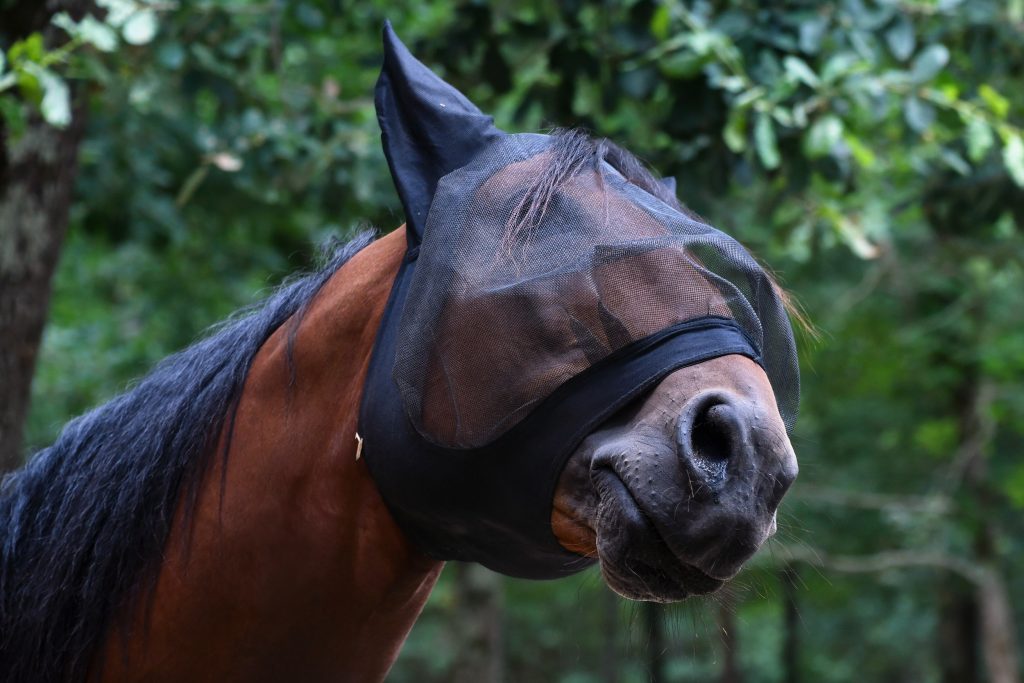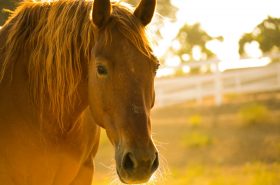Both horses and people are at risk for this deadly virus!
The mosquito-borne virus known as West Nile virus or WNV affects both horses and humans. In the summer months, equestrians must be diligent in their efforts to control mosquito populations. There are also vaccines for horses to prevent the disease. It’s better to take preventive measures, rather than deal with the symptoms and treatment of an infection.
What is West Nile Virus?
Infected birds transmit the virus to mosquitos. People and horses are then infected through the bite of a mosquito. This virus is not contagious from horse to horse or horse to human. It can cause inflammation of the brain, brain lining, and spinal cord in both humans and horses. You and your animals are at the greatest risk in the summer through fall months. It exists across the United States with some of the highest numbers being in Arizona, Nebraska, and Texas.
How to Prevent WNV
Your horse must receive the vaccine prior to infection for it to be effective. There are two doses that should be administered three to six weeks apart. Unfortunately, it takes another four to six weeks after the second dose for your horse to have full protection. A booster may be needed. Your veterinarian will be able to advise you further.
In addition to the vaccine, you should clean up your horse’s environment to reduce mosquito populations. This can include eliminating standing water, keeping pools covered and clean, and making sure roof gutters drain properly. Don’t leave old tires or barrels lying around, as water can puddle on them.
Furthermore, you should avoid turning out your horse in dusk and dawn when mosquitoes are most active. Bug spray can also be applied to deter them from biting your horse. Lastly, a fan in your horse’s run in or stall can make it difficult for them to fly. If stall kept, make sure windows have screens and doors are shut.

Symptoms
After a horse is bitten by the infected mosquito, it may take anywhere from 5 to 15 days for them to show signs. Some of the more common symptoms include stumbling, weak limbs, lack of coordination, muscle twitching, partial paralysis, and death. Most horses do not have a fever, though that can also be a sign.
It’s important to remember not every infected horse will show signs. Some will have multiple indicators, while others will have one or even none. An IgM capture enzyme-linked immunosorbent assay (ELISA) test is an effective way to detect WNV. Your veterinarian should be contacted immediately, if you suspect your horse may be infected.
Treatment
In the unfortunate event your horse develops WNV, you’ll need veterinary care for them. Your vet clinic will offer supportive care like pain medications and anti-inflammatories. Outside of that, there is no specific treatment. Most horses will show improvement roughly a week later.
Among the cases, 33% of horses will die from the infection, 50% will recover, and 17% will relapse. Your horse is also at risk for a secondary infection, which can further complicate their condition. This virus is very serious!
Because of the high death rate and nasty symptoms, most veterinarians agree that vaccinating your horse is a smart thing to do. Prevention is key! You can protect your horse from West Nile virus by being proactive and doing your research.



